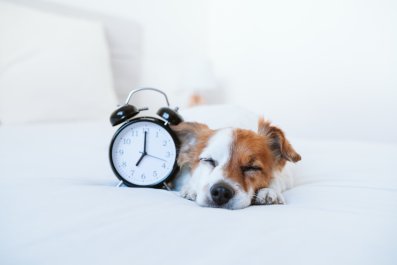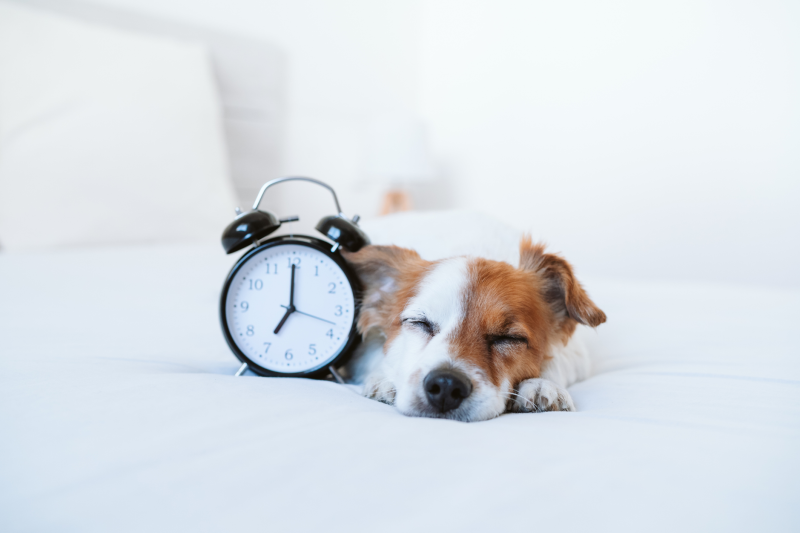
Daylight Saving: 3 Signs Your Dog Is Confused as Clocks Fall Back
With the clocks going back this weekend—on Sunday—many of us may be dreading the darker evenings (or looking forward to the extra hour in bed.) But humans aren't the only ones affected by daylight saving time.
While most animals aren't affected by arbitrary human timekeeping, our pets strongly rely on human cues, especially dogs.
"Animals tell time through a biological clock that synchronises with the natural light and dark cycles of the day," Jeffrey Kelu, researcher in circadian rhythms at King's College London, said in a statement. "This synchronisation leads to the predictable timing of behaviours such as sleeping, foraging, and hunting, which are known as circadian rhythms. Domesticated animals, however, have their biological clocks significantly influenced by social cues, such as human interactions.
"Pets can't perceive the concept of daylight saving, so the sudden change in their humans' routines can be particularly confusing for them."
The following symptoms may all be a sign that your pet is struggling to adjust to the new schedule:
- Increased vocalizations ahead of feeding times.
- Anxiety
- Upset stomach
"This is because their biological clocks are temporarily out-of-sync with their humans' altered schedule due to daylight saving time," Kelu said. "Since furry friends thrive on consistency, the sudden shift in their walking or feeding routines can trigger anxiety or even an upset stomach."

So, what can you do to prepare for the clocks going back and to protect your pets from these negative effects?
"To minimise the negative impacts on pets, we should start adjusting their routines gradually about a week before DST begins, by 10 to 15 minutes earlier or later, depending on the time change," Kelu said. "This gradual shift can help prevent digestive issues that might arise from an abrupt change in feeding times. Owners also need to be patient, understanding, and trusting, as it may take your pets a couple of days or longer to fully adjust their clocks, similar to how we recover from travel jetlag."
Daylight saving was invented by Benjamin Franklin in 1784 and introduced in 1918 to maximize daylight hours and conserve candle use. However, today, daylight saving time may actually increase our energy use in the form of heating and air conditioning. And energy conservation is not the only thing to worry about here.
Numerous studies have suggested that changing the clocks (especially in the spring) may increase our risk of heart disease, strokes and other heart-related hospitalizations, as well as car accidents and mental health issues. As a result, many experts have called for us to abolish daylight saving time and to follow in the footsteps of Arizona and Hawaii, the only two states that keep their clocks the same all year.
